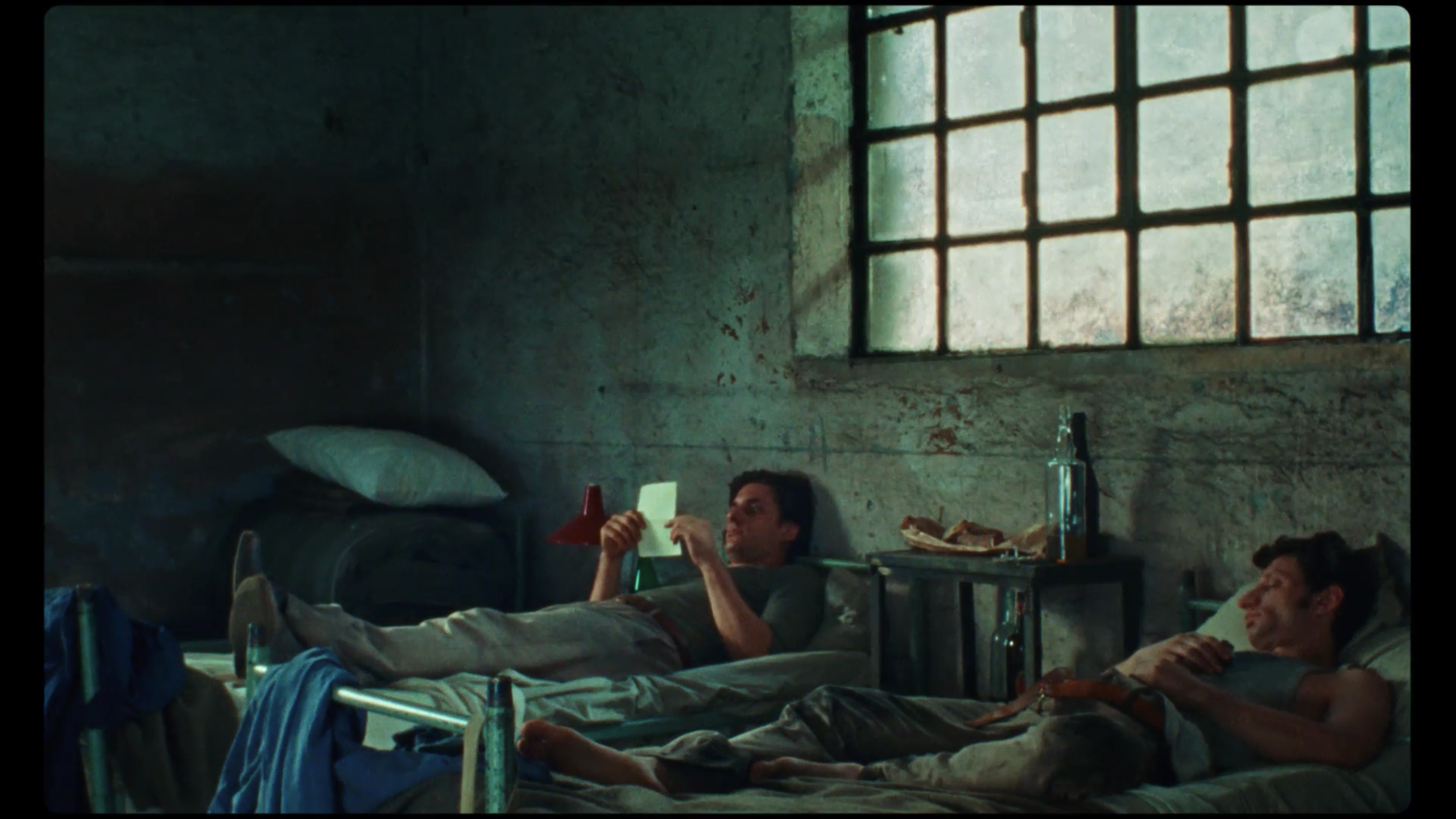The Furniture: "Martin Eden" and Designing Outside of History
 Wednesday, October 21, 2020 at 11:00AM
Wednesday, October 21, 2020 at 11:00AM "The Furniture," by Daniel Walber. (Click on the images for magnified detail)
 Jack London was befuddled by the reception of Martin Eden. He intended the novel to be a sharp critique of individualism and was surprised when the public took his protagonist as something of a libertarian hero. Though as J. Hoberman points out in his extremely perceptive reading, the novel is more of a “tragic celebration” than a bitter condemnation. And perhaps the “misreading” of an antihero is always inevitable, the unintended seduction of an unexpected contingent of the audience.
Jack London was befuddled by the reception of Martin Eden. He intended the novel to be a sharp critique of individualism and was surprised when the public took his protagonist as something of a libertarian hero. Though as J. Hoberman points out in his extremely perceptive reading, the novel is more of a “tragic celebration” than a bitter condemnation. And perhaps the “misreading” of an antihero is always inevitable, the unintended seduction of an unexpected contingent of the audience.
This tension has followed Martin Eden into the 21st century. Pietro Marcello’s new adaptation moves the story from California to Italy and places it outside of time, replenishing some of the aesthetic mystery that is inevitably lost when a novel is cast, shot and projected onto a screen. The production design helps, contributing to the atmosphere at both high and low registers.
Martin Eden begins, in part, as a love story. Martin (Luca Marinelli) is a sailor who falls for Elena Orisini (Jessica Cressy), the daughter of a wealthy liberal family...
She likes him, but not nearly enough to elope. One gets the clear impression that Elena shares her parents’ concern with Martin’s level of education and cultivation. Art director Tiziana Poli and production designers Roberto De Angelis and Luca Servino lay out the class distinctions quite clearly. We see Martin in bed in his musty sailors’ quarters, far from luxury, reading on a simple cot.
He sells the first books that Elena lends him at a local junkshop, where he will also purchase his typewriter. Martin’s initial context is one of barter and pawn, an economy of necessity that could not be further from the stiff economic principles of Elena’s pedantic family.

Elena’s home, meanwhile, is a quietly dazzling example of bourgeois elegance and decorative density, patterned wallpaper and stained glass. It’s the location that feels perhaps most clearly set in the early 1900s, the time period of the novel’s publication.
The interiors become increasingly threatening as the film goes on. Martin responds to his success with resentment at everyone who didn’t believe in him in the first place. At his last dinner with Elena and her parents, he lashes out at their condescension and political myopia. But we’re hardly invited to sympathize with the Orsini perspective, which begins to look ugly under the dimming light.
But Marcello’s philosophy necessitates much more complex production design as well. There are subtle anachronisms throughout. Martin’s sister, for example, has a TV in her apartment. It’s a small one, consistent with the design’s blunt representation of class status, but it also unsettles the narrative fabric.

But why, exactly?
Is it an effort to displace Martin’s individualist politics, liberating them from the early 20th century in order to reinvigorate them? It’s hard to say. His one appearance at a socialist hall seems safely couched in the past, with its old portraits and simple red backdrop.

But once Martin achieves popularity and financial success, everything seems to crack open. Marcello cuts quite suddenly to an ornate interior, a home that makes the Orsini dining room look quite modest. Martin has suddenly arrived at luxury, glass chandeliers and marble doorposts. A drawn portrait hangs to the right.

On the one hand, the actual decor of the rooms could easily be 19th century. But everything else about this last act shoots into the future. Martin gives a press conference with modern microphones. He rides around in mid-20th century cars. The result is an atmosphere that resembles an alternate dimension. The vibe, in terms of visual opulence, unclear period signifiers and Marinelli’s blustery performance is very similar to the last act of The Childhood of a Leader.
Perhaps Martin’s ideology must be unmoored from history in order to make sense. This opulence is like a pessimistic echo of the dacha in Doctor Zhivago, which offered its lovers a temporary oasis from the engine of revolution. But Martin is not taking refuge in true love, but in self-love. He rejects socialism because it has no place for the individual. Socialism seeks to improve the lot of the working class by struggling through history. Martin seeks to transcend it, alone. And he appears to have pulled it off, at least in terms of book sales.
But at the very end, reality returns.
Sitting on the beach, he is suddenly alerted to the coming of war. Marcello cuts to the wall behind him, where a man is painting a pacifist slogan onto the wall. History is poised to plow right over Martin and his success. And so instead of choosing to play a role in the vast human drama to come, he walks into the sea.








Reader Comments (2)
Glad to see this film highlighted in this column as I thought the production design was very notable and added a lot to my enjoyment of the movie. I don't know what the budget was on this film, but it felt like a throwback to some of the major European movies of the late '60s and '70s, which were larger-budgeted affairs because they attracted so much interest at the box office. (Also, I can't wait to see more from Luca Marinelli.)
Payforessay who are professionals in this work and getting things done on time so you can decide how you can make proper things work for few persons!